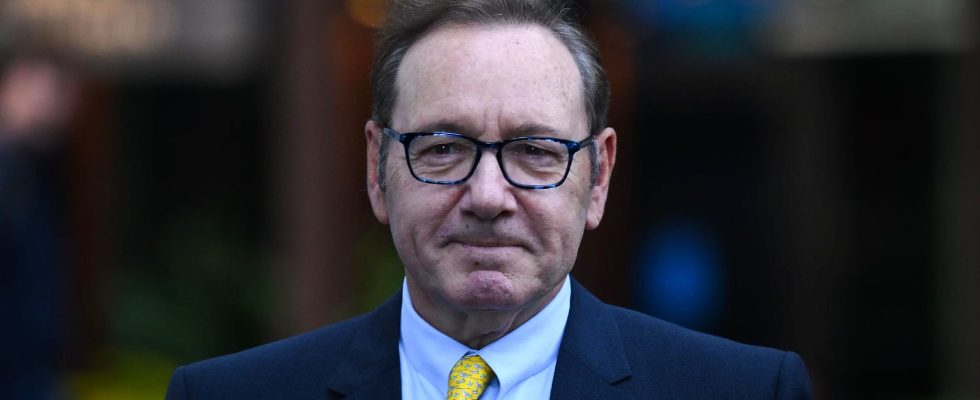Kevin Spacey, huge actorAmerican Beauty orUsual Suspects, is free. After a month-long trial in London, the American actor was found not guilty on nine counts – of sexual assault and incitement to have sex without consent involving four men who were then much younger than him, between 2001 and 2013 – by a popular jury. Despite the charges that described a “dismissive” and “aggressive” man, and subject to possible new proceedings (three counts were set aside due to a legal defect), here is the actor who played the mythical Frank Underwood in the series House of Cards bleached. He had already been a year ago by American justice.
“My world exploded. I lost my job, my reputation,” Spacey said during his trial. Will his honor be washed away? Will he be able to resume his career at the end of a six-year “parenthesis”, during which he was banished by the world of cinema, treated as a plague like a real Harvey Weinstein? It is to be hoped, but nothing is less certain. Because since the start of the #MeToo wave, many things have changed, for the better but also for the worse. The word of the victims has certainly been released (although this is not the case in all circles…), but, justice being slow to take over from disorderly accusations, it is too often in the media court that the trial. Public opinion is quick to judge, on the basis of the famous principle that “there is no smoke without fire”, and to condemn. And this, especially since journalists invoke freedom of information in defiance of the secrecy of the investigation. Anyone who has ever been prosecuted by the courts can nevertheless measure how important this secret is, protective and a vector of reintegration at the end of a procedure.
Neofeminists will oppose that a broken career is infinitely less collateral damage than a rape victim condemned to silence and injustice. They are nevertheless the same people who, in other circumstances, have always considered that ten guilty people are better off than one innocent person in prison (or worse: sentenced to death)…
Correcting one injustice with another
Not only does the principle of the presumption of innocence no longer seem to be valid for some of the favorite scapegoats of our societies (let us quote pell-mell: immigrants, “old white males”, the rich or “stars”…), but some neo-feminist activists are calling for its abolition on the pretext that the vast majority of sexual and sexist crimes have still not been prosecuted and condemned to this day.
Or how to draw from a good question (the still cruel failures of justice) conclusions that will probably only make the situation worse. Because claiming to correct one injustice with another has never been a lasting solution that brings peace. And in the same way that the frightening succession of miscarriages of justice ended up getting the better of (in many countries) the death penalty, a day will come when we will collectively come to our senses, and more and more of us will consider that t is unacceptable to banish a woman or a man even before he is judged by the justice of his country after a fair trial.
What if I was accused?
The principle of the presumption of innocence unfortunately symbolizes today for a whole section of our youth the blatant injustice of a system that still does not know how to hear the victims of sexual and sexist assault. To find its meaning, everyone would benefit, before judging this or that on the basis of accusations relayed by the press, by asking themselves: if I was accused of this, and that these accusations were fanciful, how would I like to be judged? Where would I like to be able to defend myself?
The colossal energy mobilized in the service of an eminently just cause – the fight against sexual and gender-based violence – is wasted attacking the fundamental principles of the rule of law. It would be much more useful to mobilize for an awareness of the complexity of the issues by the police as well as by the justice system, and so that both sides are granted the necessary means to accomplish their difficult mission.
